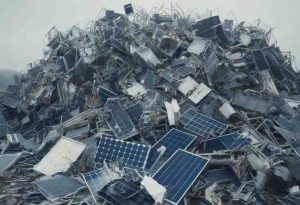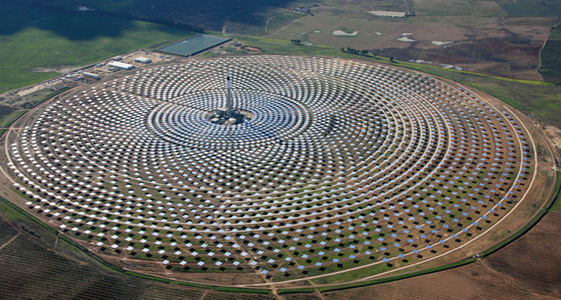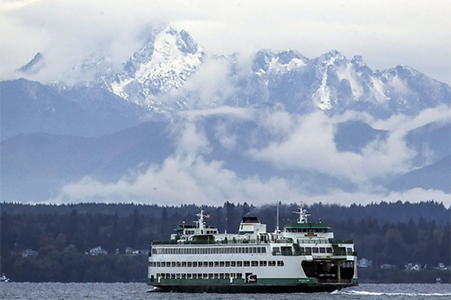||| FROM MONGABAY.COM |||
- Demand for renewable energy, particularly solar panels, is growing at an exponential rate. But the shift to solar, wind, EVs and other sustainable tech solutions has sparked an environmentally destructive mining boom and is itself carbon intensive.
- And even as renewables boom, we’re burning more fossil fuels than ever, setting another record for emissions in 2023. So it appears high tech alone can’t save the world from catastrophic climate change; only massive cuts in fossil fuels can do that, say experts. But even addressing the climate change planetary boundary isn’t enough.
- Five other planetary boundaries are in the danger zone, though solutions exist to reverse these negative environmental trends, say analysts. But for those solutions to happen, governments must shift trillions of dollars in “perverse subsidies” (that support fossil fuels and do environmental harm) to renewable energy.
- Without real, drastic, decisive action now, the sixth great mass extinction could be unstoppable and doom modern life as we know it. Still, there’s another way forward: Learn from Indigenous cultures, with their willingness and ability to integrate into the biosphere, and to humbly turn away from greed and overconsumption.
In 2022, U.N. Secretary-General António Guterres declared that the “lifeline of renewable energy can steer [the] world out of climate crisis.” In saying so, he echoed a popular and tantalizing idea: that, if we hurry, we can erase the climate emergency with widespread adoption of renewables in the form of solar panels, wind farms, electric vehicles and more.
But things aren’t that simple, and analysts increasingly question the naïve assumption that renewables are a silver bullet.
That’s partly because the rapid transition to a global energy and transport system powered by clean energy brings with it a host of new (and old) environmental problems. To begin with, stepping up solar, wind and EV production requires many more minerals and materials in the short term than do their already well-established fossil fuel counterparts, while also creating a major carbon footprint.
Also, the quicker we transition away from fossil fuel tech to renewable tech, the greater the quantity of materials needed up front, and the higher the immediate carbon and numerous other environmental costs. But this shift is now happening extremely rapidly, as companies, governments and consumers try to turn away from oil, coal and natural gas.

“Renewables are moving faster than national governments can set targets,” declared International Energy Agency executive director Fatih Birol. In its “Renewables 2024” report, the IEA estimates the world will add more than 5,500 gigawatts of renewable energy capacity between 2024 and 2030 — almost three times the increase between 2017 and 2023.
But this triumph hasn’t brought with it a simultaneous slashing in global emissions, as hoped. In fact, 2023 saw humanity’s biggest annual carbon releases ever, totaling 37.4 billion metric tons, which has led experts to ask: What’s going on?
**If you are reading theOrcasonian for free, thank your fellow islanders. If you would like to support theOrcasonian CLICK HERE to set your modestly-priced, voluntary subscription. Otherwise, no worries; we’re happy to share with you.**








Depressing.
But…
My solar panels in Berkeley, California are 25 years old and doing fine.
Never been repaired.
If my appliances break, I get them repaired.
My 2015 Nissan LEAF EV has been trouble free.
I did buy a new set of tires and wiper blades last year.
EVs require minimal maintenance.
I admit that I replaced a 15-year old heat pump that kept blowing out $300 capacitors.
The idea of Buy Nothing is helpful. If you no longer need something, find it a new home.
There is a local Facebook group for that.
Stuff needs to be designed so that it can be recycled/repurposed efficiently.
The Ellen MacArthur Foundation champions a circular economy.
See: https://www.ellenmacarthurfoundation.org/
Shiver me timbers! Every once in a while we run into a news source that just blows one away… and today we find ourselves fortunate enough to be in the company of two of these.
Thank you Lin for allowing the Orcasonian to become SJC’s leading citizen-based conduit for in-depth, unbiased information. Going into territory where all should go yet none other dare, unafraid to attribute yourself towards the most important problems of our day. You’re a game-changer and my hat is off to you.
I also want to personally thank whoever it was that submitted this excellent article and in doing so turned us on to Mongabay News. “Mongabay is an independent media organization reporting on Nature and planetary challenges with a global network of local journalists.” https://news.mongabay.com/
It’s good that we’re talking about ecological overshoot and climate change… don’t you think everybody should?
Excellent article! Two standout lines:
“…the key to reducing environmental harm is to radically reduce energy demand.”
and
“It’s too late for modernity to succeed but it’s not too late for humanity to succeed.”
It seems clear to me that the only viable answer available to H. sapiens is to gradually reduce our population to long term, locally sustainable numbers. This need not involve the Four Horsemen of the Apocalypse; an annual birthrate that is just 3% below the annual death rate will reduce the original population by half in just 23 years. Without immigration and with just 3% fewer children born each year (or 3% more old folks passing on), the population of the US would go from ~330 million to ~154 million by 2050. That is roughly equal to the population of the US in 1950.
In practice, I suspect that a small, steady population decline would help to solve a wide variety of ecological problems as well as a number of social problems (It will also cause a number of social problems of course). What happens to housing prices if every year there is slightly LESS demand? Real estate is not a very good investment then, is it? But what happens to social welfare programs like Social Security in a falling population scenario? What happens to Corporate Capitalism in a falling population scenario? Interest rates? What happens to wages? With all these unknowns, it is easy to see why short-term thinkers and technotopians are embracing natalism, despite the inevitable and suicidal long-term result.
I don’t actually think that we will collectively deal with the compounding ecological and social crises until we are literally forced to and by that time it will of course be too late for any good options. But H. sapiens is a remarkably adaptable species, so I have no doubt that we will muddle though the degraded environment we have created and once our population has re-stabilized at a sustainable number, the surviving cultures all around the world will begin growing again. I’d like to think that our descendants in 500 years time will avoid repeating our mistakes, but maybe that’s excessively optimistic?